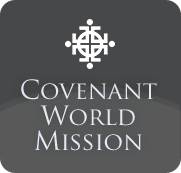This is my first time posting on our book that we are reading together. This is for a couple of reasons. Partly, because it was Kim’s idea to post on the book and share with our blog community. For the most part, though, it’s been because I haven’t been extremely excited about the book up until this point. I had pretty much agreed with everything it has been saying in it’s main points and really didn’t disagree with it. It was more just where I felt it was placing emphasis and I felt it was a little too much one sided in it’s approach.
However, after reading chapter 3, everything has changed. I’m now sold on this book and would recommend it to anyone wanting to get an understanding behind why poverty exists and what can be done about it or what are the best ways or attitudes to have in going about attempting to eliminate poverty. Let me share a little bit of my reactions from chapter 3 to illustrate.
One of the main points put forward by chapter 3 is that poverty is a result of sin in the world- the sin of humanity, the brokenness in relationships between humanity and God and humanity with each, but also the brokenness in creation in general. Because of the fact of this, the answer can only come from God through his reconciliation. In Colossians Chapter 1, the Apostle Paul talks about God’s desire to reconcile “all things” unto Him, so Jesus Christ is the reconciler and since poverty is caused by these broken relationships, the solution to poverty is in the power of Jesus’ death and resurrection to put all things into right relationship again. This means that we, his creation, and our actions are not the source reconciliation but through God alone. But it’s our job as his created beings to be ambassadors of reconciliation. Again, the Apostle Paul says it best:
All this is from God, who reconciled us to himself through Christ and gave us the ministry of reconciliation: that God was reconciling the world to himself in Christ, not counting people’s sins against them. And he has committed to us the message of reconciliation. We are therefore Christ’s ambassadors, as though God were making his appeal through us. We implore you on Christ’s behalf: Be reconciled to God (2 Corinthians 5:18-20).
In this way, in working to alleviate poverty it is a ministry of reconciliation where we assist in doing God’s work of moving people closer to glorifying God by living in right relationship with God, self, others and with the rest of creation.
Here is one of my favorite paragraphs from the chapter:
The goal is not to make the materially poor all over the world into middle-to-upper-class North Americans, a group characterized by high rates of divorce, sexual addiction, substance abuse, and mental illness. Nor is the goal to make sure that the materially poor have enough money…. Rather, the goal is to restore people to a full expression of humanness, to being what God created us all to be, people who glorify God by living in right relationship with God, with self, with others, and with the rest of creation. (p. 78)
As one may conclude from this and is stated later in the chapter: “Ultimately, the profound reconciliation of the key relationships that comprise poverty alleviation cannot be done without people accepting Jesus Christ as Lord and Savior.” Amen brother!!!
Now, I must say the chapter was very balanced in that though all this was said about the reconciliation of people to God, it also talked much about the need for reconciliation in systems. And very short but well written explanations of systems that are broken and in need of reconciliation. For example, they explained well what happened in the 70’s with OPEC and the rising oil prices and how so much of the developing world is still in debt because of those events. As well as, a little more thorough and well laid out explanation was provided of what happened in the African American communities after slavery was abolished and how there have been many broken systems that have all played a part in that story.
Finally, and I will end with this thought, I loved how they gave emphasis on the local church and that the local church is the main conduit for God’s reconciliation with his Creation. Parachurch ministries are important of course but it is only through the local church that lives can truly be transformed in community and poverty can truly be alleviated.
Everyone should read this book!!!





 The Santiago Partnership
The Santiago Partnership